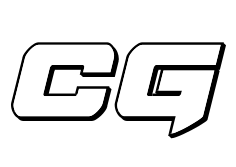From Concept to Code: The Ultimate Guide To App MVP Development – Dev Team, Tech Stack & Success
Last Updated – December 5th, 2023
In this comprehensive guide, you’ll embark on a journey to master the art of app development. We’ll demystify the process, helping you select the perfect development team, craft a robust tech stack, navigate the development process, and make informed decisions about resources, costs, and timelines. Whether you’re a seasoned entrepreneur or a first-time app creator, this guide will empower you with the knowledge and insights needed to turn your app vision into reality.

From Concept to Code: The Ultimate Guide To App MVP Development – Dev Team, Tech Stack & Success
Last Updated – December 5th, 2023

In this comprehensive guide, you’ll embark on a journey to master the art of app development. We’ll demystify the process, helping you select the perfect development team, craft a robust tech stack, navigate the development process, and make informed decisions about resources, costs, and timelines. Whether you’re a seasoned entrepreneur or a first-time app creator, this guide will empower you with the knowledge and insights needed to turn your app vision into reality.
Share This Guide
1. Introduction to App Development
In the dynamic world of technology, app development stands as a cornerstone of digital transformation. Whether it’s enhancing user engagement, streamlining services, or creating new digital experiences, apps are at the heart of modern business strategies. As a leading software development firm, we specialize in crafting bespoke app solutions that resonate with your unique business needs. This guide serves as your comprehensive roadmap, illuminating the path from conceptualization to the final deployment of your app.
– Importance of Choosing the Right Development Team
Selecting the right team for your app development is crucial. It’s not just about technical skills; it’s about finding a team that understands your vision and translates it into a functional, user-friendly, and impactful application. Our team combines expertise, creativity, and a client-centric approach to ensure your app not only meets but exceeds expectations. With our diverse experience across industries, we promise a partnership that navigates you through every twist and turn of app development.
– Overview of Our Services and Expertise
Our service portfolio spans across:
- Web Design & Development: Crafting responsive and interactive websites tailored to your brand identity and business goals.
- Software Design & Development: Building robust, scalable, and efficient software solutions that drive business growth.
- Mobile App Design & Development: Creating engaging mobile apps with intuitive user interfaces for iOS and Android platforms.
- Ecommerce Design and Development: Developing powerful ecommerce platforms that offer seamless shopping experiences.
- Logo Design and Branding: Designing unique logos and branding elements that encapsulate your brand’s essence.
- SEO Services: Enhancing your digital presence through strategic SEO practices that elevate your brand’s visibility.
As we delve into the nuances of app development, our guide will equip you with the knowledge to make informed decisions and partner effectively with a development team that champions your vision.
2. Understanding the Tech Stack
In the realm of app development, the front end is where your users interact with your product. It’s the look, feel, and experience of your app. We excel in a variety of front-end technologies:
– Front End Technologies
- JavaScript/TypeScript: The backbone of web app interactivity, offering versatility and efficiency.
- Frameworks: Our expertise includes React for its component-based architecture, NextJS and NuxtJS for server-side rendering, Angular for robust enterprise solutions, and Vue JS for progressive and adaptable UIs.
- CSS Frameworks: We utilize Tailwinds CSS for its utility-first approach, enabling rapid and responsive design.
- JavaScript/TypeScript
-
- Pros:
- Versatile and universally accepted, ensuring cross-browser compatibility.
- TypeScript offers strong typing, which leads to more robust code and fewer errors.
- Cons:
- JavaScript can be less predictable due to its dynamic nature.
- TypeScript requires a learning curve for developers more familiar with JavaScript.
- Pros:
-
- React, NextJS, NuxtJS, Angular, Vue JS
-
- Pros:
- React: Highly efficient and flexible with a strong community support.
- NextJS/NuxtJS: Optimized for server-side rendering, enhancing SEO and performance.
- Angular: Offers a comprehensive framework with strong features for enterprise-level applications.
- Vue JS: Lightweight and easy to integrate, great for progressive web apps.
- Cons:
- React: JSX syntax may be challenging for new developers.
- NextJS/NuxtJS: Can be overkill for smaller projects.
- Angular: Steep learning curve and sometimes considered overly complex.
- Vue JS: Smaller community compared to React and Angular.
- Pros:
-
- Tailwinds CSS
-
- Pros:
- Highly customizable and perfect for designing responsive layouts quickly.
- Utility-first paradigm allows for greater design consistency.
- Cons:
- Can lead to large file sizes if not purged properly.
- Requires familiarity with its utility classes, which might be overwhelming initially.
- Pros:
-
– API Development
APIs are the lifelines connecting various software components. We specialize in:
- RESTful APIs and GraphQL: Ensuring seamless data retrieval and manipulation, offering flexibility in data querying.
- Node JS/Express JS: These technologies enable us to build fast, scalable network applications, perfect for handling multiple requests simultaneously.
- RESTful APIs and GraphQL
-
- Pros:
- REST: Widely used standard, compatible with many platforms and languages.
- GraphQL: Allows clients to request exactly what they need, reducing over-fetching.
- Cons:
- REST: Can lead to over-fetching or under-fetching of data.
- GraphQL: Complexity in handling queries, increased learning curve.
- Pros:
-
- Node JS/Express JS
-
- Pros:
- Node JS: Ideal for building scalable network applications; uses JavaScript for both client and server side.
- Express JS: Minimalist and flexible, allows for rapid development.
- Cons:
- Node JS: Callback structure can lead to complex, nested code (callback hell).
- Express JS: Being minimalist, it often requires additional middleware or tools for robust applications.
- Pros:
-
– Backend Technologies
The backend is the powerhouse of your app, where all the data processing happens. Most of the heavy lifting happens in the backend where the database, servers or cloud functions, and APIs function together to handle your project’s features. Your backend design is crucial from the beginning, as it needs to be able to scale with your project, or serious headaches and rebuilds occur later.
Our expertise covers:
- Languages: Python and PHP for their versatility, Rust for performance-critical applications, and GoLang for its simplicity and efficiency in handling large-scale applications.
- Frameworks: We utilize Node JS and Express JS for scalable network applications, Django and Flask for Python-based solutions, and Nest JS for building efficient, reliable, and scalable server-side applications.
- Databases: Data is the fuel for any project. We work with SQL Databases and NoSQL Databases. More on that later.
- Python, PHP, Rust, GoLang
-
- Pros:
- Python: Versatile, great for rapid development with a vast ecosystem.
- PHP: Widely used for web development, with a large community.
- Rust: Offers memory safety and concurrency without sacrificing performance.
- GoLang: Simple syntax, efficient for concurrent processes and microservices.
- Cons:
- Python: Can be slower due to being an interpreted language.
- PHP: Lacks modern features and frameworks compared to other languages.
- Rust: Steep learning curve, particularly around ownership and borrowing concepts.
- GoLang: Limited inbuilt libraries; dependency management can be challenging.
- Pros:
- Databases SQL (MySQL, PostgreSQL), NoSQL (MongoDB, Firebase)
- Pros:
- SQL: Strong data integrity and ACID compliance, ideal for complex queries.
- NoSQL: High scalability and flexibility, ideal for handling large volumes of unstructured data.
- Cons:
- SQL: Can become complex and less performant with large, unstructured datasets.
- NoSQL: Lacks the strong consistency of SQL databases, which can be a drawback for certain applications.
- Pros:
– Mobile App Development Technologies
Mobile apps require a specialized approach for each platform. With the ever changing landscape of mobile apps and software, you need a powerful stack that can take advantage of the mobile device’s native features, while maintaining performance, efficiency, privacy, and compliance with Apple & Google. We specialize in:
- Flutter/Dart and React Native: For cross-platform mobile app development, ensuring consistency and efficiency.
- Kotlin/Java for Android and Swift for iOS: Ensuring high performance and native experience on each platform.
- Flutter, React Native, Kotlin/Java
- Pros:
- Flutter: Offers high performance and a beautiful UI with a single codebase for iOS and Android.
- React Native: Enables building native apps using JavaScript, reducing development time.
- Kotlin/Java: Native development for Android, offering optimal performance and user experience.
- Cons:
- Flutter: Relatively new, with a smaller community compared to React Native.
- React Native: Sometimes requires native code for complex functionalities.
- Kotlin/Java: Requires separate codebases for iOS and Android, increasing development time.
- Pros:

